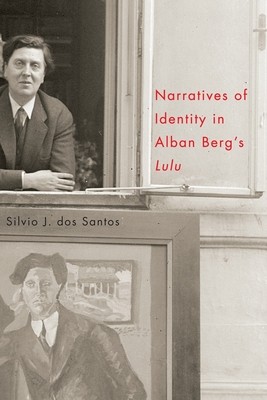
- We will send in 10–14 business days.
- Author: Silvio Dos Santos
- Publisher: University of Rochester Press
- ISBN-10: 1580464831
- ISBN-13: 9781580464833
- Format: 15.2 x 22.9 x 1.8 cm, hardcover
- Language: English
- SAVE -10% with code: EXTRA
Reviews
Description
This book explores the crossroads between autobiographical narratives and musical composition in Alban Berg's Lulu, unveiling aspects of encoded social customs, gender identity, and personal experiences within musical structures.
Exploring the crossroads between autobiographical narrative and musical composition, this book examines Berg's transformation of Frank Wedekind's Erdgeist and Die Büchse der Pandora -- the plays used in the formationof the libretto for Lulu -- according to notions of gender identity, social customs, and the aesthetics of modernity in the Vienna of the 1920s and 1930s. While Berg modernized several aspects of the plays and incorporatedserial techniques of composition from Arnold Schoenberg, he never let go of the idealistic Wagnerian perspectives of his youth. In fact, he went as far as reconfiguring aspects of Richard Wagner's life as an ideal identity to beplayed out in the compositional process. In composing the opera, Berg also reflected on the most important cultural figures in fin-de-siècle Vienna that affected his worldview, including Karl Kraus, Emil Lucka, Otto Weininger, andothers.Combining analysis of Berg's correspondence, numerous sketches for Lulu, and the finished work with interpretive models drawn from cultural studies and philosophy, this book elucidates the ways in which Berg grappled at the end of his life with his self-image as an "incorrigible romantic," and explains aspects of his musical language that have been considered strange or anomalous in Berg scholarship. Silvio J. dos Santos isassistant professor of musicology at the University of Florida.
EXTRA 10 % discount with code: EXTRA
The promotion ends in 20d.06:01:26
The discount code is valid when purchasing from 10 €. Discounts do not stack.
- Author: Silvio Dos Santos
- Publisher: University of Rochester Press
- ISBN-10: 1580464831
- ISBN-13: 9781580464833
- Format: 15.2 x 22.9 x 1.8 cm, hardcover
- Language: English English
This book explores the crossroads between autobiographical narratives and musical composition in Alban Berg's Lulu, unveiling aspects of encoded social customs, gender identity, and personal experiences within musical structures.
Exploring the crossroads between autobiographical narrative and musical composition, this book examines Berg's transformation of Frank Wedekind's Erdgeist and Die Büchse der Pandora -- the plays used in the formationof the libretto for Lulu -- according to notions of gender identity, social customs, and the aesthetics of modernity in the Vienna of the 1920s and 1930s. While Berg modernized several aspects of the plays and incorporatedserial techniques of composition from Arnold Schoenberg, he never let go of the idealistic Wagnerian perspectives of his youth. In fact, he went as far as reconfiguring aspects of Richard Wagner's life as an ideal identity to beplayed out in the compositional process. In composing the opera, Berg also reflected on the most important cultural figures in fin-de-siècle Vienna that affected his worldview, including Karl Kraus, Emil Lucka, Otto Weininger, andothers.Combining analysis of Berg's correspondence, numerous sketches for Lulu, and the finished work with interpretive models drawn from cultural studies and philosophy, this book elucidates the ways in which Berg grappled at the end of his life with his self-image as an "incorrigible romantic," and explains aspects of his musical language that have been considered strange or anomalous in Berg scholarship. Silvio J. dos Santos isassistant professor of musicology at the University of Florida.


Reviews